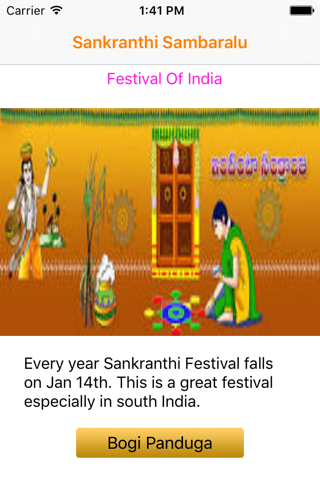
Pongal is the only festival of Hindu that follows a solar calendar and is celebrated on the fourteenth of January every year. Pongal has astronomical significance: it marks the beginning of Uttarayana, the Suns movement northward for a six month period. In Hinduism, Uttarayana is considered auspicious, as opposed to Dakshinaayana, or the southern movement of the sun. All important events are scheduled during this period. Makara Sankranthi refers to the event of the Sun entering the zodiac sign of Makara or Capricorn.
In Hindu temples bells, drums, clarinets and conch shells herald the joyous occasion of Pongal. To symbolize a bountiful harvest, rice is cooked in new pots until they boil over. Some of the rituals performed in the temple include the preparation of rice, the chanting of prayers and the offering of vegetables, sugar cane and spices to the gods. Devotees then consume the offerings to exonerate themselves of past sins.
Pongal signals the end of the traditional farming season, giving farmers a break from their monotonous routine. Farmers also perform puja to some crops, signaling the end of the traditional farming season. It also sets the pace for a series of festivals to follow in a calendar year. In fact, four festivals are celebrated in Tamil Nadu for four consecutive days in that week. Bogi is celebrated on January 13, Pongal on Jan 14, Maattuppongalon Jan 15, and Thiruvalluvar Day on Jan 16.
